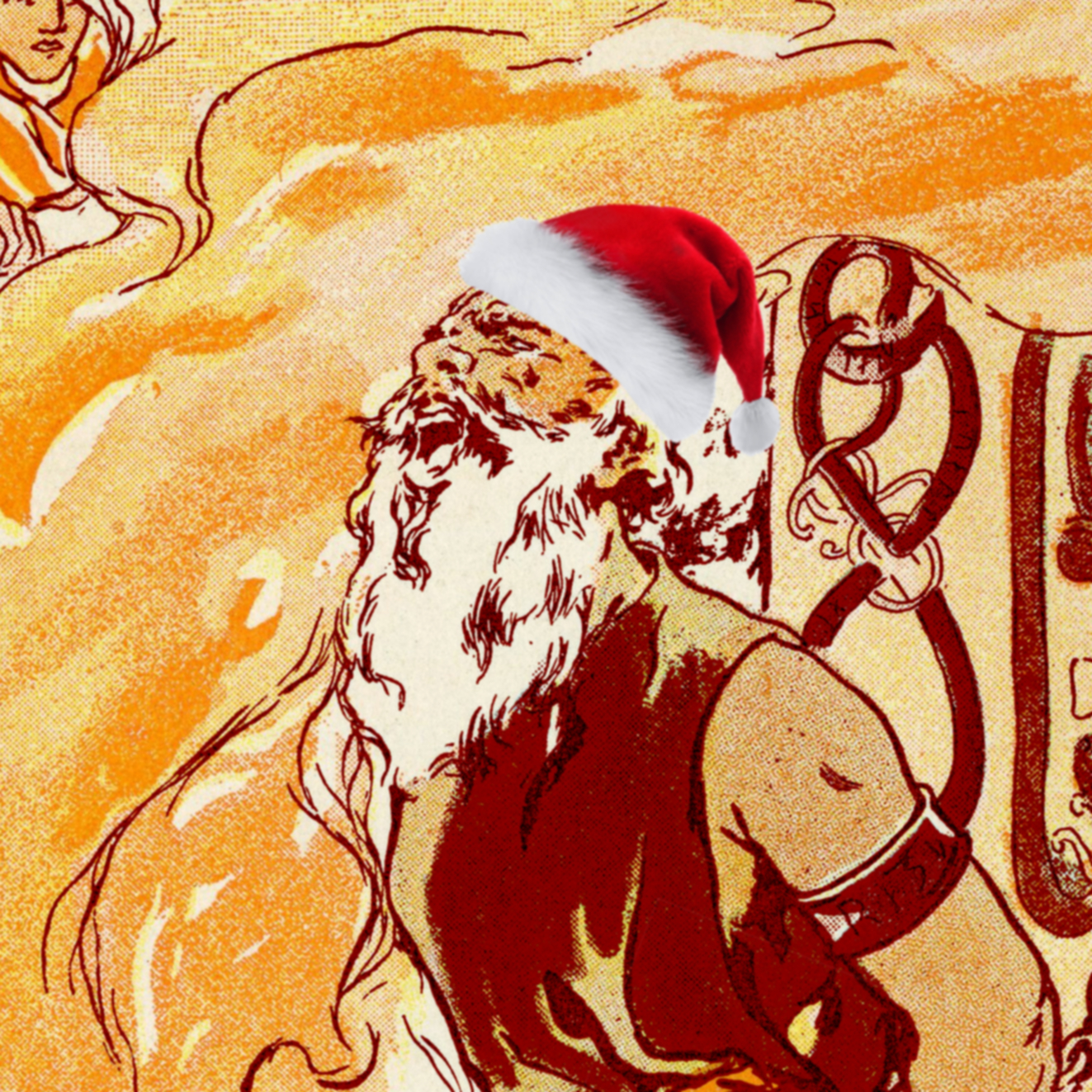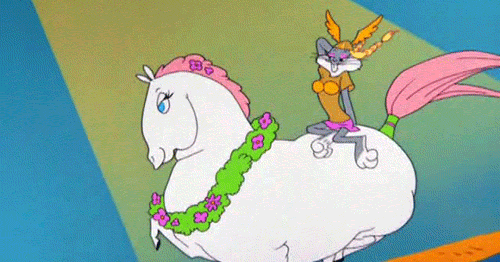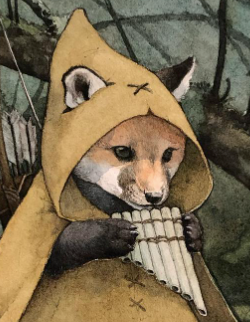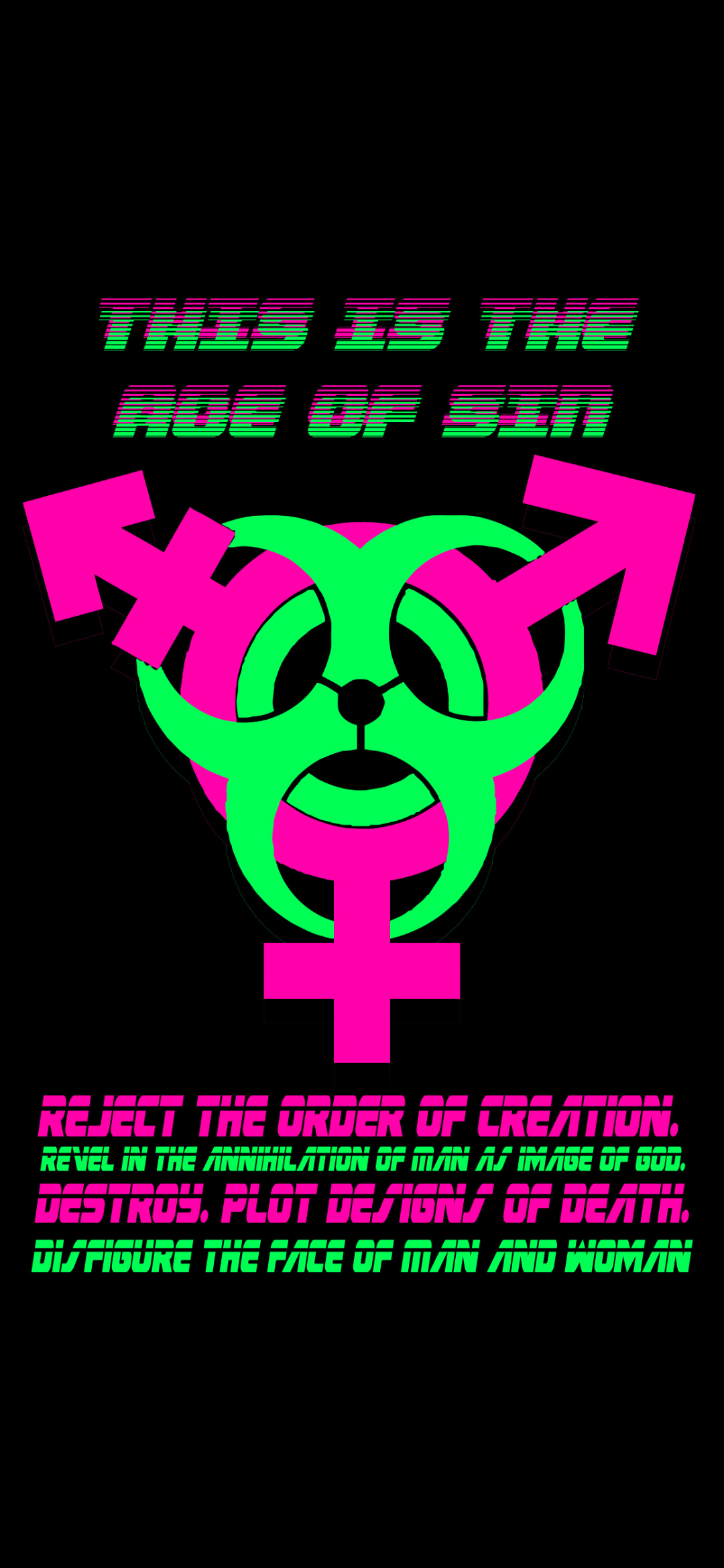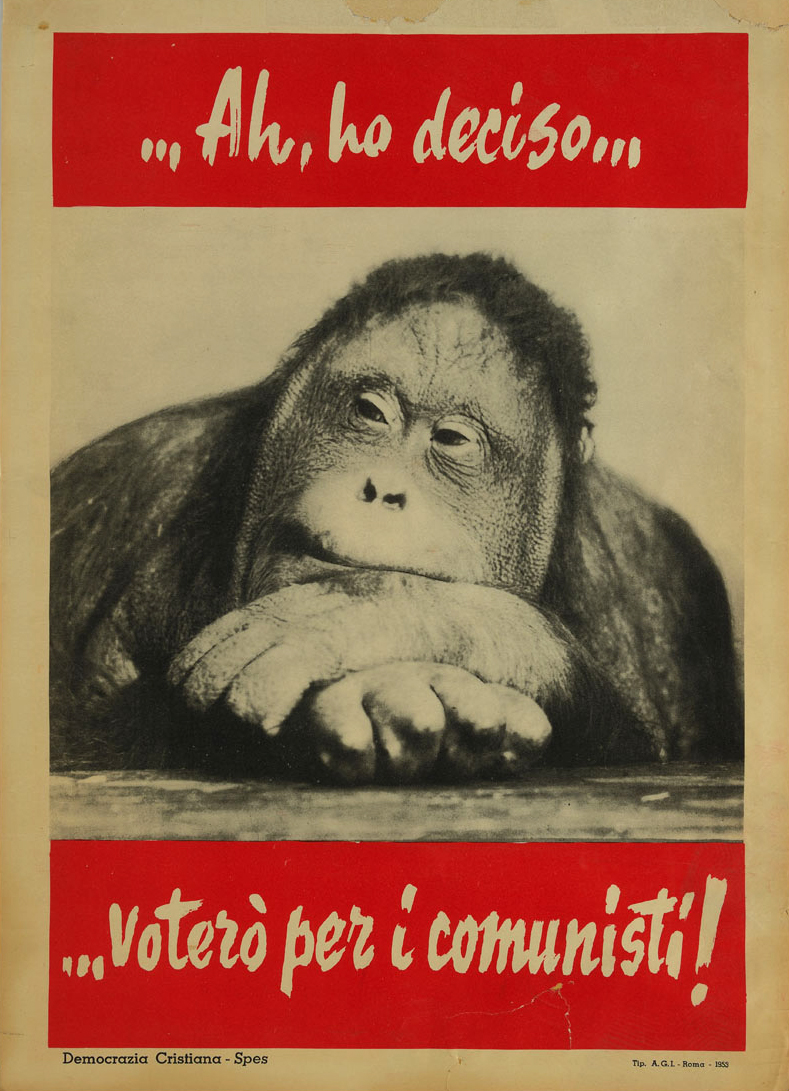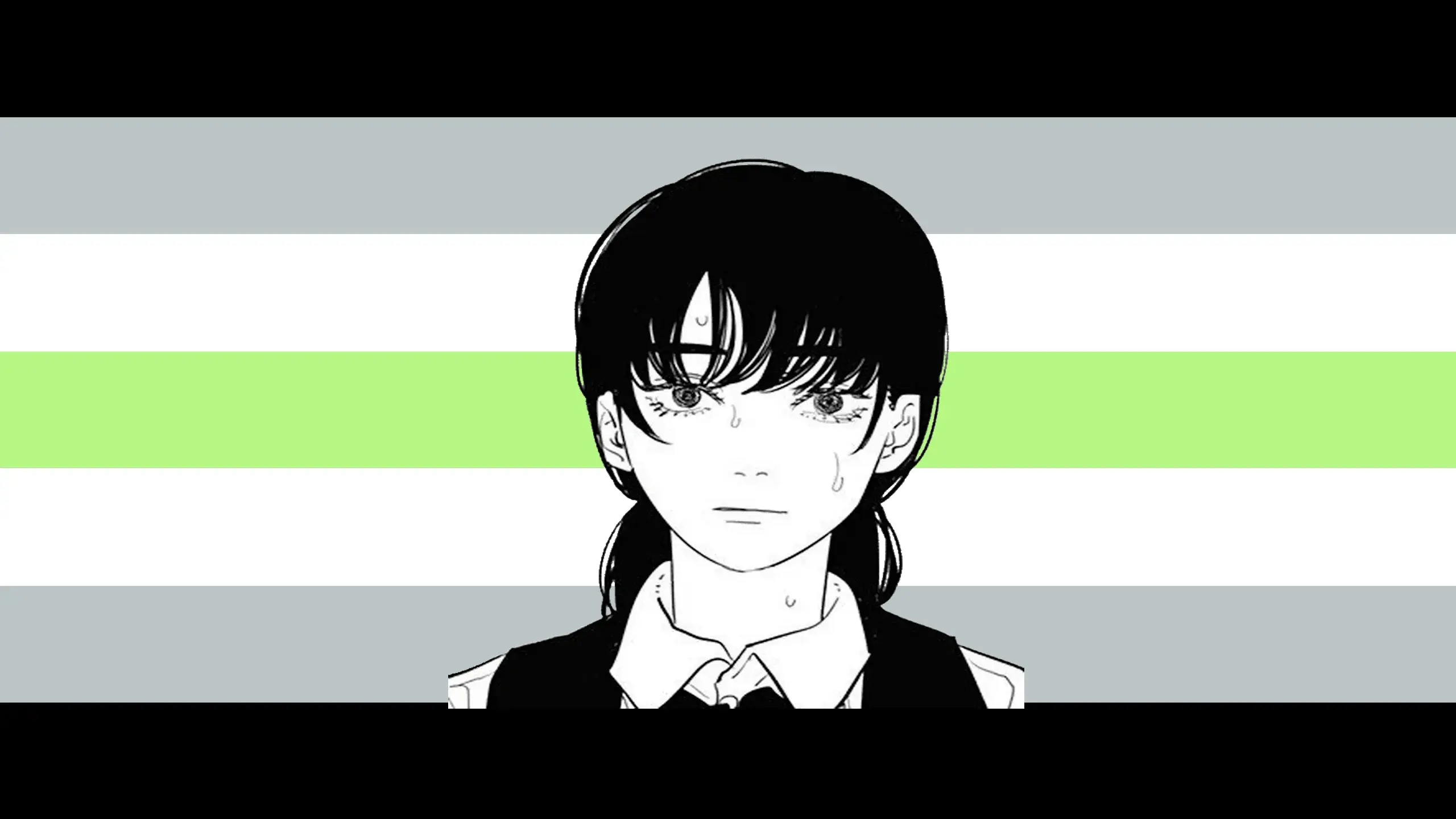it's like this for anything set in the so-called "dark ages"
why is everyone covered in dirt?
why is the nobility dressed in drab rags?
why does everything look like it's already an antique?
why are they burning braziers and torches in the daytime?
why are they wearing swords on their back?
why aren't the soldiers wearing a helmet?
WHERE ARE THE SPEARS????etc. etc.
Do you think sexual violence in medieval stories is secretly for the purpose of having creeps get off? I'm very confused by your


I mean, thats not exactly an uncommon trope in media involving vikings
MFW there's yet another tv show/movie about the Norse and it's yet another action adventure and not a courtroom drama period piece about an icelandic farmer who accidentally burned down his neighbors forest while making charcoal
Show
Charcoal burners occupied a sort of low status in medieval Europe if I understand correctly. They were necessary, but existed at the fringes of society.
Im actually referencing a real saga lol: Ölkofra þáttr or "the Saga of Ale-hood"
https://en.m.wikipedia.org/wiki/%C3%96lkofra_%C3%BE%C3%A1ttr
Vikings in popular media are just a stand in for an ideal of white masculinity. I hate that everything needs to be so translated to the current cultural climate. Why do people have to see themselves in a character from over 1000 years ago? If you write the story well enough that'll happen anyway. Stories about completely different kinds of people dealing with universal human problems are compelling. Why dumb it down? It's sad.
Related to the "see themselves in a character from over 1000 years ago" thing, some people take a bizarrely literal interpretation of the fact that several gods in the tales break gender norms, and take that as a statement of cultural acceptance without really reading further than that.
When really the Thor crossdressing story is like, pretty distinctly comedic, while both Loki and Odin are routinely insulted and shamed for their breaking of gendered roles, and they actually insult each other over it too(also, a VERY common insult throughout the Eddas is basically accusing others of being unmasculine, which at least one modern translation just straight up renders as an accusation of homosexuality).
Not that I would characterize it as a simple "character flaw" of theirs, but I have always got a distinct feeling that its a very deliberately complicated part of their personalities.
There were some interesting features about their gender roles at least. And I know there were a lot of different independent cultures over Scandinavia, but I've found it interesting how often women would have leadership roles, like Thyra leading armies or how frequently a head priestess could override political decisions.
There are also fictional women in the sagas like Lagertha. I've always liked the story of Thor wrestling Elli, and she's mentioned as being the strongest wrestler in Asgard even if she's an old woman. Thor is congratulated in that story for lasting like 5 seconds against her.
Shield maiden stories tend to emphasize domestic roles for women because the shield maiden virtually always either dies or retires after their one quest is complete
Elli is actually encountered by Thor on his journey to Utgard with Loki. Shes not actually a person, or a god, but something else.
The Jotunn leader of Utgard, Utgard-Loki, challenges Thor, Loki and their servant Thjalfi to various games and each loses. Loki and the Jotunn Logi ate from a trough of meat, and though they both met in the middle, Logi had consumed the entire trough itself as well as all the meat and bones. Thjalfi raced against the Jotunn Hugi, but no matter how fast he ran Hugi always arrived at the end almost instantly. Then Thor was given a horn of mead and told to drain it in three gulps or less, but he could not do it despite taking massive drinks and nearly drowning himself in it. Then he was shown Utgard-Loki's cat and asked to lift it up off its feet, but he could only get it off three paws. By the Utgard-Loki was very unimpressed with the gods and he decided to give Thor an easy test: to wrestle an old woman named Elli. So Thor and Elli wrestled, but he could not beat her despite being the strongest of all the gods, and she brought him down to one knee.
By the end of the story, all three are disheartened by their losses, but as they leave Utgard-Loki explains that he used magic to trick them. Loki was only just beaten by Logi, who is in reality wildfire, and was able to burn through all the food and the wood of the trough itself. Thjalfi raced against Hugi, who is thought, and no one can run faster than they can think.
But it was Thor who was most deceived. When Thor drank from his horn, the other end was in the sea, and so thors massive gulps, which could never have emptied the entire ocean, still removed so much water that he created the tides. When Thor lifted the cat up off only 3 of its paws, he was really lifting Jormungandr, the entire world serpent, up out of the ocean. And when Thor wrestled with Elli, he was grappling with old age, and in spite of the inevitability of old age taking us all, Elli was only able to bring Thor to one knee.
At this point Thor was quite mad at Utgard-Loki, and so he decided to kill him, but by the time he had raised Mjölnir the Jotunn king and all of Utgard had disappeared into thin air.
Yeah, I've always loved this story. I like how metaphysical these stories get, like Loki and Thor are fighting personifications of abstract concepts.
I've also thought it's interesting how many stories there are of the Norse gods losing in battles, or getting tricked by something. Like when Thor meets the ferryman Hárbarðr, Thor doesn't defeat him, he sulks away in shame after getting insulted repeatedly.
"My name is Hárbarðr! I seldom lie about that."
-Odin, lying about his name, like always.
I love these stories lmao
Related to the "see themselves in a character from over 1000 years ago" thing, some people take a bizarrely literal interpretation of the fact that several gods in the tales break gender norms, and take that as a statement of cultural acceptance without really reading further than that.
See incest in Ancient Greece, where it was considered vile for people to do and appeared among the gods in part to emphasize that the nature of gods and humans was different.
didn't they also do the thing where it's bad to be gay, but it's not gay if you're the top?
From what I understand yeah basically, thats also why that one translation I mentioned just straight up renders that one specific insult as "gay", because it has the connotation of unmasculinity/femininity/submissiveness.
I recall reading that it got some negative responses from other translators/historians because it comes off as pretty juvenile in some parts to have the gods just call each other gay, probably a "better" word to translate it to would be the gay slur, in terms of actually translating the level of offense intended with the insult, but I guess as a serious translator you arent really allowed to make the gods call each other f*ggots.
But yeah it was really serious to call another man that insult, IIRC it was justification for demanding a judicial duel, or even murder.
the word bad originiates from the old german for effeminite man and they worshiped a pantheon similar to the norse
It really bothers me that popculture has distorted the idea of vikings into its own mythical nation and not just a job some people did. Funniest is when you get an English person being like "I'm descended from vikings.", like, bro Yorvik was famous for its grismen, your ancestors collected whale vomit for a living.
so youre saying sexy lord of the rings elves were coming to plunder the local church? how do i help them and how many twinks can i take home
my people come from peat bogs. we glimpsed the retreating glaciers leaving depressions, filling with detritus and rain. we trembled with excitement to eat the sour muds. the gods cursed the hairs from our heads and sent them fleeing to our backs and asses, so we would be forever recognized for our atavistic tastes.
our banners are tattered rags.
our words are "We do not bathe."we were here before you.
we will be here long after you have gone. with your wheels and your televisions and your detergents.This is fairly common practice in places where it's minus 10c outside and you have to get your wife (or more likely your slave) to go to the well, get the water, carry the water, heat the water, and carry the water to you.
"Every morning a woman comes and brings a tub of water and places it before her master. He proceeds to wash his face and hands in this and then his hair, combing it out over the tub. Then he blows his nose and spits into the tub, and leaving no dirt behind, conveys it all into this water. When he has finished, the girl carries the tub to the man next to him, who does the same. And so she continues carrying the tub from one to another, until each of those in the house has blown his nose and spit into the tub, and has washed his face and hair."
That's fucking nasty. Imagine being the twentieth dude who has to see 19 other dudes' nasty loogie and snot floating in some filthy tub and then washing your face and hands from the same tub because he didn't say they had two tubs, one for the hands/face and one for the loogie/snot. It really comes off as him insulting them for not knowing how to wash themselves properly.
The Northman, for some of its other weird choices, does actually feature rich viking guys dressing like rich guys would, in nice fabrics and such.
Also the Danish comic book series "Valhall" features all the gods dressed up as basically normal lords and rich people for the most part, a lot of the tone of the mythology is adapted into more of a comedic childrens book vibe but its still my all time favorite representation of all those tales.
Also I don't understand why people admire the vikings they literally just murdered and enslaved a bunch of people that was their interaction with the rest of Europe. The norse did more peaceful settler colonialism but viking exclusively refers to murderous thieves
That was also the Rest of Europe's interaction with Europe. The Saxons were guilty of most of the same practices as the Vikings (and, indeed, had done the same thing as the Great Heathen Army 300 years before). The Franks were real pieces of work, the Carolingian Empire committing war crimes on a scale the Norse could barely imagine, and then blaming them for their decline and not the massive Civil Wars. And then we have the Gothic Wars, which did more to usher in Late Antiquity than Attila could have dreamed.
More evidence that the Moors shouldn't have stopped at Tours.
Dont forget the "holy" catholic crusaders who massacred non christians and also byzantines too!
I think for me its mostly the boats. They had some damn nice looking boats, you gotta admit.
There's a huge amount we don't know about much of the Scandanavian people's during this period due to absence of written sources and due to most later texts from the regions being written later, by Christians. There's apparently alot of debate among historians who work on the topic, especially given that even to the degree that we know something about Viking-Age Scandanavians, they are likely biased by reflecting the ideology of the ruling aristocracy rather than ordinary peasants, farmers, etc.
As far as I recall there are a variety of descriptions that describe their appearances in different ways.
The first-hand source that jumps immediately to mind and which goes into much detail is that of Ibn Fadlan, who describes the Viking Rus as essentially filthy, violent barbarians, although they were also mentioned as bathing. Although it might be unclear as to whether he's referring only to physical hygiene or also religious conceptions of cleanliness, given that they were also, as you've noted, at least among the aristocrats, for being a bit vain about their appearance (including hair). That they were hygenic in one way doesn't necessarily imply that we or others in the past would think they were hygenic in other ways.
i mean if that whole human sacrifice bit isn't totally embellished i'd be pretty freaked by those guys too
Yh I mean personally I think they sound totally fucked. People (libs) can shout 'presentism bad' all they like but at the end of the day the people who's actual job was being a viking were fucking brutal and terrifying. Ibn Faldan's description would indicate that their society was extremely patriarchal and violent (Odin's feminine weirding ways through magic, and the similar trait being attributed to male shamans, notwithstanding). That's obviously not to say that other societies at the same time didn't practice similar or greater levels of violence, but when you read Faldan's description of a chieftan's funeral is does sound like violence (physical and otherwise) were incorporated into their social fabric in a very directly present way, both formally and informally.
Complains about people misrepresenting vikings
Uses the term "shield-Dane" and "spear-Dane". Lol.
Once you pay the nerd-geld you can never be rid of the nerd. But seriously, you made a pedantic nerd topic and didn't expect other pedantic nerds to show up?
Lol why are you acting like people are laying into you and debate lording you when you made a historical mistake in a post about being annoyed by historical mistakes
It's pedantic to be annoyed by modern faddish hairstyles that are popular with chuds being plastered over ostensibly "historically accurate" shows?
Yes it actually is
Are you also annoyed by the black hot topic lowkey bdsm leather clothing in medieval/medivial fantasy shows? Because I am for sure! Like it looks soo out of place and is the equivalent of portraying the modern-day American fast-food worker wearing striped suits made out of diamond plates.
At least he wasn't using east dane for the swedes hahah.
- Showdepictions & descriptions of viking-period hairstyles are pretty sparse, but this kind of tonsure/style frequently depicted on the Bayuex Tapestry shares some characteristics with a "fade". translating a text description or a shoddy picture like this onto someone's actual hair is pretty difficult, i wouldn't be surprised if stylists' attempts at that looked more modern 'fade'-y than not.
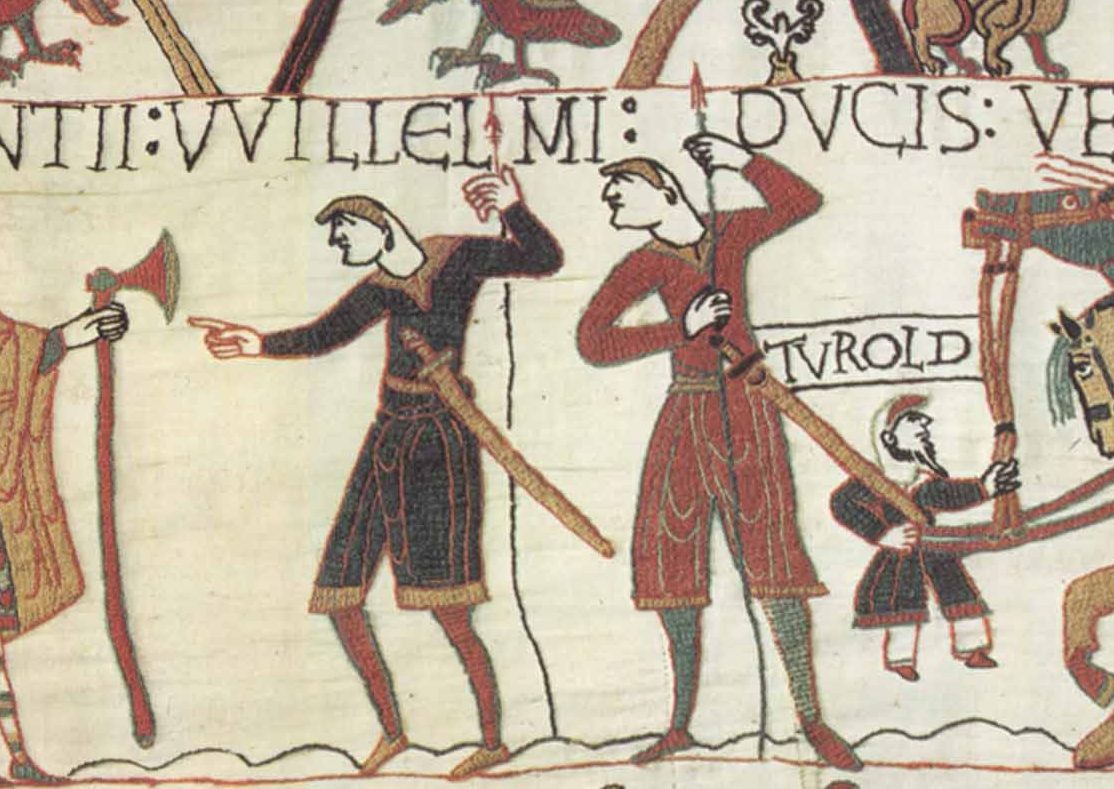
Dancing man with horned head-dress and man with spear wearing wolfskin! The best Torslunda plate. The Northman referenced this in the berserkr ritual scene
Show
That specifically looks like Cossack hair. Shaped in back with a long loc up front. Bonus if you put that into a braid it would sit under a helmet and give a bit of nice extra padding.
Show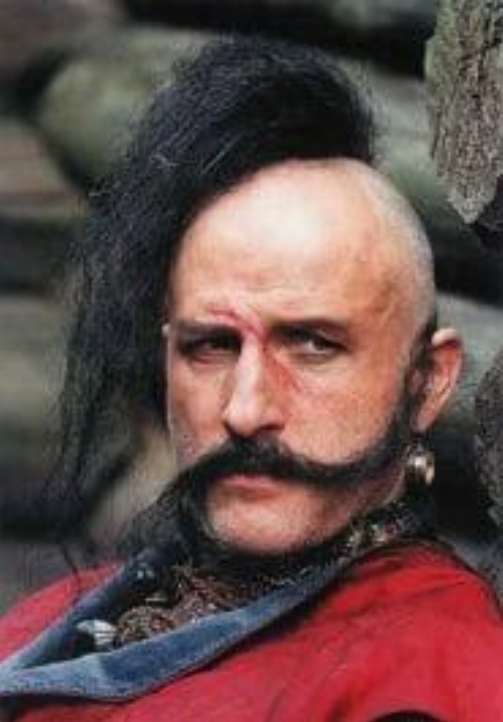
the hair honestly looks badass, sucks that russians use it as a slur
There are still some cossack larpers in kuban tho.
those are normans though, arent they? not saying they didnt wear a norse hairstyle but they were pretty far removed culturally from their norse roots at that point, so maybe it's not a norse hairstyle but a specifically norman (or shudder french) hairstyle
its a norman-made tapestry, it depicts other kinds of people.
but typing hairstyles to cultures based on 1 (one) source is pretty silly regardless, all we can definitively say is that some people round 1066 wore a hairstyle that got represented in that way, we don't know how it was worn or for what purpose
They wore it long but there's also a few sources describing that the hairstyle was the "reverse mullet" favoured by other cultures like the Celts. The men probably didn't wear braids, but definitely wore flowers.
What do you mean by "reverse mullet"? Do you have any pictures or links to anything?
Shaved at the back, front left long to chin/shoulder length, parted at the center and pulled into two ponytails to hang along the temples, sometimes pulled into a topknot instead. Possibly braided, but definitely adorned.
It's a very common warrior hairstyle accross Eurasia. But it isn't very attractive to modern sensibilities.
On the vikings encountering Jewish people, its very possible the Varangians encountered the Khazars on their way to Constantinople; and according to some sources their Nobles converted to Judaism around the same time as the Viking age. Ahmed ibn Fadlan funnily enough, on his trip where he documented his encounter with the Rus vikings, wrote about them and said "the core element of the state, the Khazars, were Judaized"
The ancient world was way more interconnected than a lot of people think.
not Viking times as much but another possible jewish steppe clan are the Seljuks before their conversion to islam, olde poppa Seljuq's kids had first testament names---also cudda been Nestorian tho
judaism was common enough in inner asia, they got to China in the T'ang or Sui dynasty
The Witcher uses its elves as a metaphor for a bunch of different groups (specifically their oppression), in some stories they're used as analogues for Jews. For all my complaints with the Witcher videogames they do manage to continue these themes with some success.



